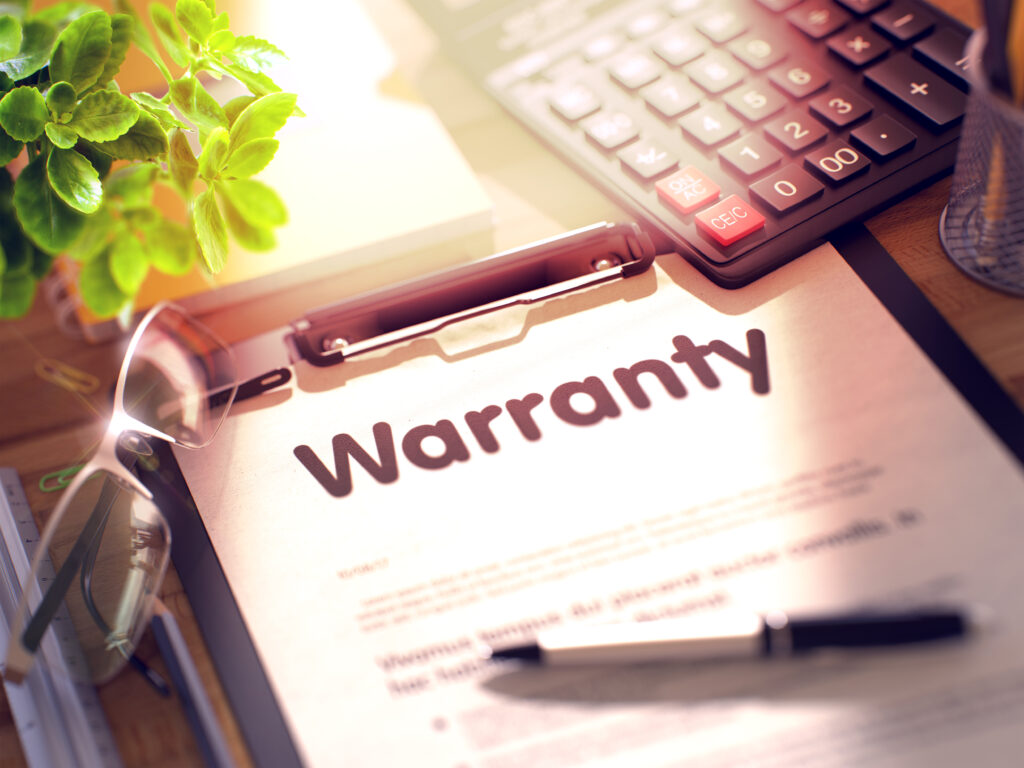
When investing in a new roof for your home or business, understanding the warranty that comes with it is crucial. A roofing warranty can serve as a safeguard against defects in materials or workmanship, providing you with peace of mind and financial protection. However, not all warranties are created equal, and it’s essential to grasp the details of what is covered and what is not. In this guide, we’ll delve into the intricacies of roofing warranties to help you make informed decisions.
Types of Roofing Warranties:
There are typically three main types of warranties offered: Manufacturer’s warranties, Manufacturer’s material only warranties; Installer’s workmanship warranties.
1. Manufacturer’s warranties: Intended primarily for commercial properties, these warranties cover both materials and labor costs for approved repairs. Note that manufacturer decides whether to repair or replace the roof assembly based on the nature of the defect and the condition of the roof. Weatherproofing warranties usually vary in duration from 10 to 30 years, depending on the roof assembly type and the manufacturer.
2. Manufacturer’s Limited, or Material Only Warranties: Intended primarily for residential properties, these warranties cover manufacturing defects in the roofing materials themselves. Material warranties do not include labor costs to make repairs, and vary in duration from 10 to 50 years or more, depending on the quality of the materials and the manufacturer.
3. Workmanship Warranties: Also known as installation warranties or contractor warranties, these warranties protect against errors in the installation process. They typically cover issues such as leaks due to improper installation, flashing defects, or other installation-related problems. Standard workmanship warranties are between 1 and 2 years, but often can be extended up to 10 years by negotiating with the roofing contractor.
Note that many warranties require Owners to perform regular inspections and maintenance on their roofs to remain valid. Failure to adhere to these guidelines may void the warranty.
Other Items Not Covered by Warranties:
-Normal Wear and Tear: Roofing warranties typically do not cover normal wear and tear that occurs over time, such as minor granule loss on shingles or natural weathering of membranes or metal roof panels.
– The contents of the building: Damage to personal belongings or other components of the building (structure, ceiling and floor finishes) is usually covered by the Owner’s Property Loss insurance policy.
– Damage from External Factors: Damage caused by events beyond the manufacturer’s or contractor’s control, such as severe weather, acts of God.
– Any unauthorized alterations made to the roof assembly, or addition of photovoltaic arrays, decks, patios etc. without notification. Note also that the cost of removing any ‘overburden’ such as garden roofs or PV systems in order to address a leak under warranty will be the responsibility of the building owner.
Tips for Maximizing Warranty Protection:
1. Read the Fine Print: Carefully review the terms and conditions of the warranty to understand what is covered and what is not. Pay attention to any exclusions or limitations that may apply. Note that manufacturer’s warranties often do not go into effect until the installer has been paid in full and the manufacturer has been given prompt notification of the leak – usually within 10 days.
2. Choose a Reputable Contractor: Work with a licensed, insured, and experienced roofing contractor who offers comprehensive workmanship warranties. A reputable contractor will stand behind their work and ensure that your roof is installed correctly.
3. Maintain Your Roof: Follow the manufacturer’s maintenance guidelines to keep your roof in good condition and prevent issues that could void the warranty. Regular inspections and minor pro-active repairs can help extend the lifespan of your roof.
4. Keep Records: Maintain records of all maintenance activities, inspections, and repairs performed on your roof. Documentation may be required to file a warranty claim in the future.
In conclusion, understanding the details of your roofing warranty is essential for protecting your investment and ensuring long-term roof performance. By knowing what is covered, what is not covered, and how to maximize warranty protection, you can confidently enjoy the benefits of your new roof for years to come. If you have any questions or concerns about your roofing warranty, don’t hesitate to contact National Roofing at 505-883-3000.
